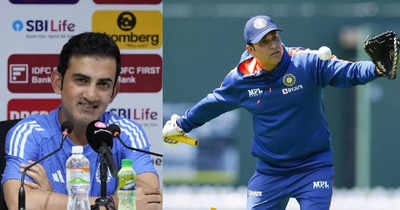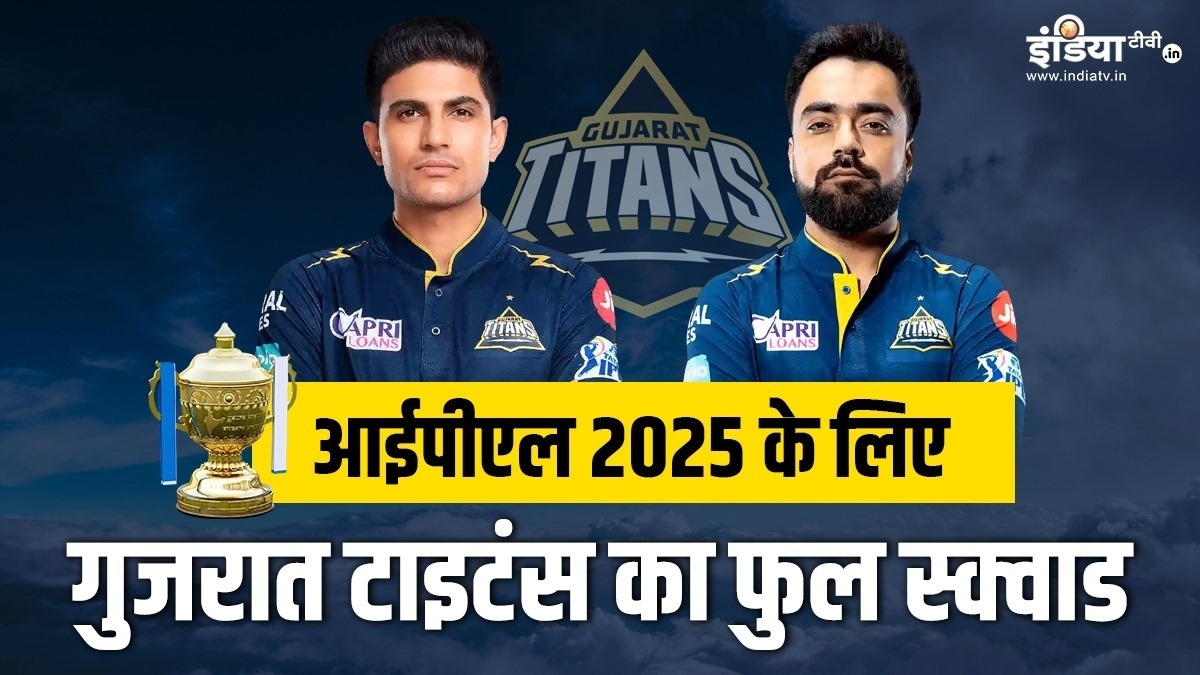NEW DELHI: The idea to appoint separate coaches for white-ball and Test cricket is not new. It’s been given a shot by teams — proved effective for some, like England, and blew up in the face for some, like Pakistan. It’s never been done by India, who’ve stuck to the one-coach-for-all-formats formula. But former England spinner Monty Panesar isn’t sure if that will work with Gautam Gambhir, who has had a forgettable run in Test cricket as India’s head coach in the first six months of his tenure.
Gambhir replaced Rahul Dravid in July last year and has been at the helm for 10 Test matches so far, winning just three of them, losing six and drawing one.
Go Beyond The Boundary with our YouTube channel. SUBSCRIBE NOW!
It includes an embarrassing first of India getting whitewashed at home for the first time in a home series of three Tests (vs New Zealand).
Immediately after, India lost 1-3 to Australia on their tour Down Under — their first series defeat in the Border-Gavaskar Trophy in 10 years.
On the other hand, he is unbeaten as India coach in T20Is, winning all six; but yet to win an ODI. In the three 50-over internationals, versus Sri Lanka, India lost two and tied the other one.
To many, the inference from these numbers is that Gambhir feels more comfortable as a white-ball tactician, which also shows in his successful stints as T20 mentor with Lucknow Super Giants and the reigning Indian Premier League champions Kolkata Knight Riders, with whom he also won two titles as captain.
He also played crucial roles in India’s T20 and ODI World Cup triumphs in 2007 and 2011, respectively.
“I think so. I think that’s a good option,” Panesar told Timesofindia.com from London, when asked if India can look at having separate coaches for Tests and limited-overs cricket.
He felt the fact that Gambhir has played with some of the senior players in the current squad may not be sitting well for him, leading to possible disagreements within the group.
“I think maybe the workload is too much for Gambhir…He’s just transitioned into a coach. Sometimes it can be difficult for some of the senior players who actually will be thinking, ‘Well, I was his teammate a few years ago, now he’s telling us how to play cricket’. It can be difficult, that transition, and also his record (as a batter) isn’t great in Australia or in England,” said the former left-arm spinner.
For the record, Gambhir played four Tests in Australia during his career and made 181 runs in eight innings at an average of 22.62, with one half-century. In England, he played five Tests and scored just 127 runs in 10 innings at an average of 12.70 and highest of 38.
Having been eliminated from the race for the World Test Championship final, which will be contested between South Africa and Australia in June, India’s next Test assignment will be the tough five-Test tour of England in June.
“He (Gambhir) averages 23 in Australia. He doesn’t average well in England either. He didn’t play the moving ball very well,” said Panesar.
“I think the selectors will be thinking ‘is Gambhir taking it seriously as a coach, or should we get him to just focus on ODIs and T20Is, and maybe bring in someone like VVS Laxman, for example (as Test coach)?…Or bring him in as a batting coach to help Gambhir. He’s similar to Rahul Dravid. He’s been successful in all conditions.
“I think you need some sort of Indian legend, who has done really well in all conditions, to come in as a coach, because then you naturally command that respect,” he added.

File photo of former England spinner Monty Panesar. (ANI)
Panesar, who took 167 wickets for England from 50 Tests, believes that players will take Laxman more seriously, given his stature and record in Test cricket. In fact, Laxman has already gone on tours as India coach as an interim arrangement on multiple occasions.
He is currently working as Head of Cricket at BCCI’s National Cricket Academy in Bengaluru.
“If Laxman tells ‘you are not going to play the ball on the up when it is swinging’, you listen, right? But with Gambhir, I’m not sure if they really take him seriously, or they’re just saying, ‘okay, yeah, we’ll listen to him, but we’re gonna go and play our natural game’,” Panesar concluded.




